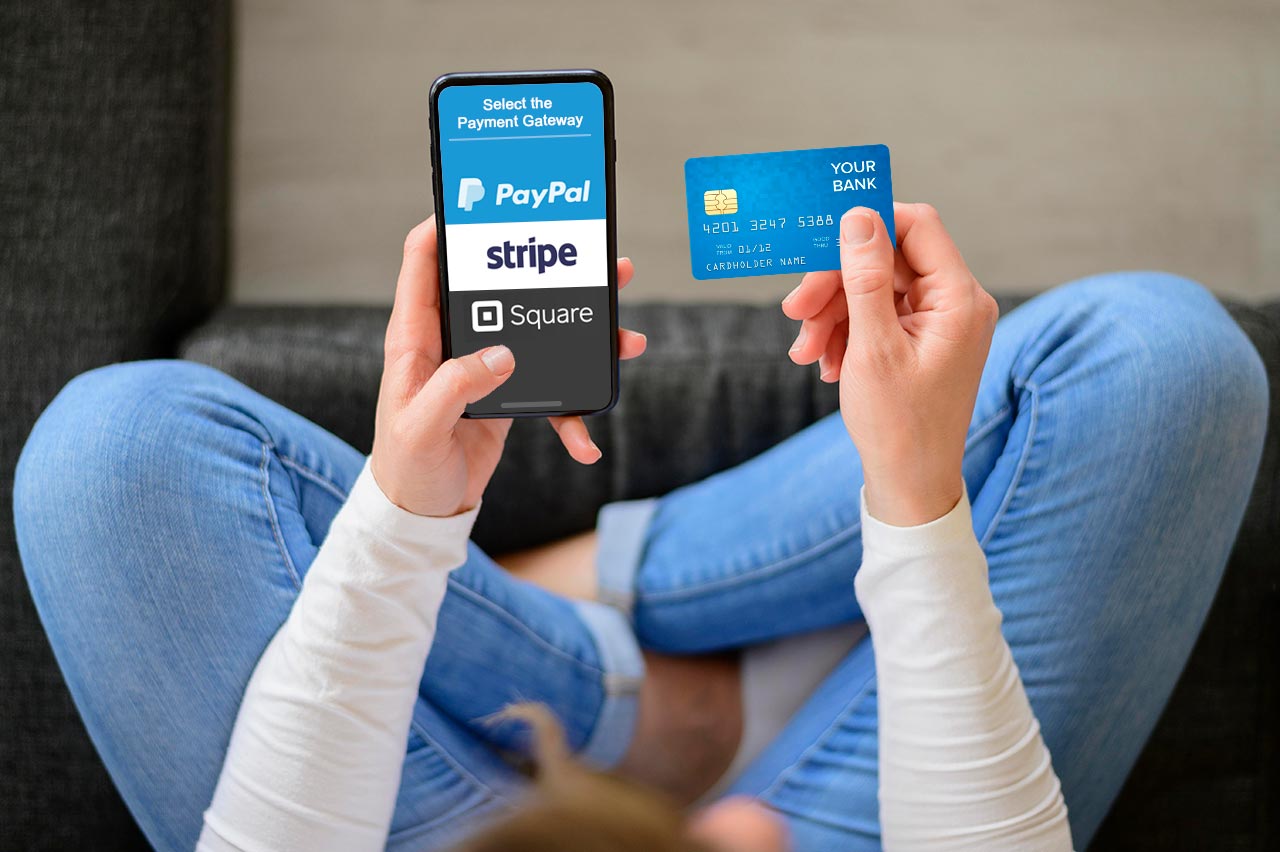If you plan to accept digital payments in your business, then you need to know about the payment gateway charges.
Payment gateways are technology solutions. They capture and transfer payment data from customers to the acquirer bank that holds the bank account of the merchant. Payment gateways support different payment options like credit cards, debit cards, prepaid cards, bank transfers, e-wallets, cash, mobile payments, and more.
In this article, we cover payment gateway charges, a breakdown of the charges, and the factors that influence payment gateway charges. Furthermore, we cover payment gateway charges by key service providers. Read on.
Also Read: The Ultimate Guide To Payment Methods For Online Businesses [2021]
“Free Payment Gateways”: It’s A Myth!

Can you have a “free” payment gateway? Let us first understand what payment gateways do before answering that question.
An online payment transaction involves the following stakeholders:
- Merchants: Businesses that would accept digital payments for products and/or services offered to customers.
- Customers: They consume the product or service offered by merchants, and they initiate a digital payment transaction.
- Issuing banks: These are banks that issue credit or debit cards to customers. They might use card schemes like Visa or MasterCard.
- Acquirers or acquiring banks: These banks hold the account of the merchant. They pass the transaction details to issuing banks, and they receive the payment.
A payment gateway does the following:
- It validates the card details of customers securely.
- A payment gateway encrypts sensitive information to ensure a secure exchange of data.
- Payment gateway processes ensure the availability of funds.
- It acts as an interface to connect the website of a merchant all the way to the acquiring bank. It enables the merchant to get paid.
By now, you know that payment gateways provide a complex set of services. They acquire various costs, e.g.:
- The costs to onboard merchants: These include documentation, KYC (Know Your Customer), etc.
- IT infrastructure costs: These include the entire gamut of hardware-related costs.
- Software development and maintenance costs: Payment gateway services providers develop enterprise-grade software systems and maintain them.
- Operational costs: These include the management and other operational costs to run a payment gateway service.
Payment gateways don’t offer their services for free. Merchants incur a charge.
A Brief Explanation Of Payment Gateway Charges
Why do you use a payment gateway? Answering this question helps us to explain payment gateway charges.
You can see the credit or debit card of a consumer in a physical store with a POS terminal. You can’t see that in the case of online payment. Online transactions are “card-not-present” transactions.
In a physical store, you can verify that the card belongs to the customers. How would you do that in the case of online payment?
Without payment gateways, online payment would involve a high risk of fraudulent transactions. Hackers can routinely target your online store and get access to the card data. This exposes you to fraudulent transactions like false chargebacks and fake transactions.
A payment gateway secures the sensitive data of customers. It transmits the information from merchants to the acquiring bank. Furthermore, it transmits the information to the issuing bank.
Payment gateways use complex IT infrastructure and software for this. They use security measures like encryption, and they use other integrations. Payment gateway providers manage the relevant operations. They meet extensive regulatory requirements. They charge fees for these products and services.
Many factors influence the payment gateway charges, e.g., the payment mode, transaction amount, etc. We talk about them shortly.
The Breakdown Of Payment Gateway Charges
The payment gateway charges comprise of the following components:
1. Setup Charges
Several payment gateway providers charge a one-time setup fee. It covers expenses to onboard a merchant. These expenses include document verification, KYC, infrastructure costs, etc.
2. Annual Maintenance Charges
Many payment gateway providers charge an annual maintenance fee. It covers costs like operations, infrastructure maintenance, software maintenance, customer support, upgrades, etc. You might choose different payment modes, transaction settlement cycles, etc. The maintenance charges depend on these.
3. Integration Fees
Several payment gateway providers charge an integration fee to integrate the payment gateway with the website or app of a merchant. Merchants might need this integration for different platforms. The integration fees depend on them.
4. TDR (Transaction Discount Rate)
Payment gateway providers charge a percentage of the transaction amount for each transaction. It’s called TDR (transaction discount rate). The following are the components of TDR:
- Bank charges: The acquiring bank charges this fee for providing card payment services;
- Processing charges: Card networks and digital payment wallet providers collect this part of the TDR;
- Tax.
What Factors Influence The Payment Gateway Charges?
The following factors influence the payment gateway charges:
- Merchants might want to activate several modes of payment. The charges vary accordingly.
- Businesses might need different kinds of integration. E.g., web checkout typically involves lower maintenance costs. On the other hand, merchants need to pay higher maintenance charges for advanced integrations.
- Merchants might sign-up for different features like auto-billing, integrated refund management, etc. They include costs accordingly.
- Several payment gateway providers offer services like fraud prevention. These might involve additional costs to merchants.
Payment Gateway Charges By Key Service Providers

We now lay out the payment gateway charges by leading service providers.
Note: All charges mentioned in % terms are per transaction unless specified otherwise.
1. Razorpay Payment Gateway Charges
The Razorpay charges are as follows:
- Maintenance charges: none;
- Setup fees: none;
- Integration fees: none;
- 2% of transactions as the Razorpay platform fees;
- 3% for instruments like Diner card, American Express card, international cards, EMI, and corporate credit cards;
Note: For the domestic transactions, GST of 18% is applicable on the 2% Razorpay platform fees only. For the international transactions, GST of 18% is applicable on the 3% platform fees only.
Also Read: PayU vs. Razorpay vs. Instamojo vs. CCAvenue Payment Gateways
2. Paytm Charges
Paytm offers two sets of pricing plans for online payments. These are “Small Medium Business” and “Enterprise”, respectively. You need to contact Paytm for the enterprise plan. The Paytm transaction charges for the “Small Medium Business” plan are as follows:
- Maintenance charges: none;
- Setup fees: none;
- Integration fees: none;
- UPI – standard: 0%;
- UPI – subscription: Rs 5-65 per mandate for the annual subscription plan;
- Paytm wallet: 1.99%;
- Credit cards: 1.99%;
- Debit card – RuPay: 0%;
- Debit card – MasterCard and Visa: 0.4% for amounts below Rs. 2,000, and 0.9% for amounts more than Rs. 2,000;
- Net banking: 1.99%;
- International payment gateways: 2.9%.
The above charges exclude GST.
3. PayPal Payment Gateway Charges
The PayPal charges are as follows:
- Maintenance charges: none;
- Setup fees: none;
- Integration fees: none;
- PayPal fees per domestic Indian transaction: 2.5% + Rs. 3.
PayPal accepts the following payment modes:
- PayPal wallet;
- Credit and debit cards like Visa, MasterCard, and American Express.
PayPal doesn’t support some of the other digital payment options in India, e.g.:
- e-Wallets;
- UPI;
- Bharat QR;
- BHIM;
- Net banking.
Also Read: PayPal vs Stripe vs Square Payment Gateways
4. BillDesk Payment Gateway Charges
You need to contact the sales team of BillDesk to understand their payment gateway charges. The company doesn’t publish them on its website.
5. Instamojo Payment Gateway Charges
The Instamojo charges are 2% + Rs. 3 per transaction excluding GST. Instamojo supports the following payment modes:
- UPI: BHIM, PhonePe, and Google Pay;
- Domestic debit/credit cards: RuPay, MasterCard, Visa, and Maestro;
- Pay later: ePayLater;
- Net banking: 60+ banks including SBI, HDFC, ICICI, etc.;
- Wallets: Freecharge, Ola Money, JioMoney, and MobiKwik;
Instamojo supports the following international payment modes:
- International credit cards: MasterCard, and Visa;
- American Express cards.
The Instamojo fees for these international payment modes are 1% more than the above-mentioned fees.
6. PayUmoney Payment Gateway Charges
The PayUmoney payment gateway charges are 2% + GST per transaction. PayUmoney supports the following payment modes:
- Cards: Visa, MasterCard, and RuPay;
- UPI: 100+ banks and 3rd party apps; BHIM, PhonePe, and Google Pay;
- Net banking: 75+ banks;
- Wallets: 15 wallets;
- “Buy now pay later” options: Lazypay, and Ola postpaid.
PayUmoney supports international payments. It supports American Express, Diners Cards, and EMI payment options. It charges 3% +GST per transaction for these.
7. CCAvenue Payment Gateway Charges
CCAvenue offers two pricing plans. The “Privilege” plan includes a Rs. 30,000 setup fee. You need to contact the company to learn about the other charges.
The other plan from CCAvenue is called the “Startup PRO” plan. The CCAvenue payment gateway charges in India for this plan are as follows:
- Maintenance charges: Rs. 1,200 (waived for the 1st financial year);
- Setup fees: none;
- Integration fees: none;
- Indian Debit Cards (Rupay, MasterCard, Maestro, & Visa): 2%;
- Indian credit cards (MasterCard, Visa, RuPay): 2%;
- 14+ Indian credit card EMI options: 2%;
- Net banking (58+ banks supported): 2%;
- Corporate/commercial credit cards (domestic): 3%;
- International credit cards (MasterCard and Visa): 3%;
- International debit cards (MasterCard and Visa): 3%;
- UPI: 2%;
- Wallets (10+ prepaid card and wallets including Paytm, MobiKwik, JioMoney, PayZapp, Freecharge, etc.): 2%;
- American Express, American Express EMI, and Diners Club: 4%;
- 27 multi-currency options: 4.99%.
The above doesn’t include taxes. CCAvenue offers CCAvenue Finance, an add-on feature. This involves additional costs of 0.2%-0.5% + GST per transaction.
8. Cashfree Payment Gateway Charges
The Cashfree charges are as follows:
- Maintenance charges: none;
- Setup fees: none;
- Integration fees: none;
- Indian Debit Cards (Rupay, MasterCard, Maestro, & Visa): 1.75%;
- Indian credit cards: 1.75%;
- Net banking (supports 65+ banks): 1.75%;
- International credit cards: 3.5% + Rs. 7;
- UPI: none, however, platform charges for reporting, settlements, refunds, etc. may be applicable;
- Wallets (Google Pay, Amazon Pay, PhonePe): 1.75%;
- Paypal and Paytm: standard payment gateway charges applicable;
- Paylater & Cardless EMI (E-paylater, OlaMoney, ICICI, Flexmoney, Zest Money, Kotak, HDFC): 2.5%;
- Diners Club, American Express: 2.95%.
9. Atom Payment Gateway Charges
The Atom payment gateway charges are as follows:
- Maintenance charges: Rs. 5,000 per annum;
- Setup fees: None
- Integration fees: Rs. 10,000 one time;
- Indian Debit Cards (Rupay, MasterCard, Maestro, & Visa): 0.9%;
- Indian credit cards (Rupay, MasterCard, Maestro, & Visa): 1.99% + Rs. 3;
- Net banking (over 50 banks supported): 1.99% + Rs. 3;
- IMPS with major banks (ICICI, Axis, SBI, HDFC, etc.): 1.80%;
- International credit cards: 3.95%;
- Major bank’s EMI options (HDFC, SBI, Axis, HSBC, etc.): available on request;
- American Express EMI, JCB, and Diners Club: 3.95%;
- Wallets (over 9 wallets including Freecharge and MobiKwik): 2.2%;
Payment Gateway Charges: FAQs

Are payment gateway charges fixed?
Payment gateway charges might include fixed and variable charges. Setup fees, maintenance charges, and integration charges are examples of fixed components.
Payment gateway providers also charge merchants a percentage for every transaction, and the percentages vary based on the payment mode. This is the variable component. The total transaction cost depends on the number of transactions.
What is TDR?
The acronym TDR stands for “Transaction Discount Rate”. It’s the per-transaction cost charged by a payment gateway provider. The cost varies based on the payment mode.
Are all the payment gateway charges deducted on a per-transaction basis?
Some of the payment gateway charges are on a per-transaction basis. The transaction cost is an example. Most payment gateway providers charge a percentage of the transaction amount, which varies based on the payment mode.
Some of the payment gateway charges aren’t deducted on a per transaction basis. Setup fees, maintenance fees, and integration fees are examples of these.
Which payment gateway is the cheapest for Indian businesses?
Many payment gateway providers cater to the Indian market. They compete intensely, and their charges are often similar. We provided an overview of the charges for you to decide.
Is there any free payment gateway that I can choose for my business?
Reliable payment gateway providers offer very competitive pricing plans. However, there’s no free payment gateway.
Why do payment gateway charges exist?
Payment gateways providers offer a complex set of products and services. They incur significant costs like infrastructure, software, operational, and management overhead. Payment gateway providers need to charge their clients for these. They won’t have a viable business model if they offer these products and services for free.
How to choose the best payment gateway for my online business?
Evaluate the following while choosing a payment gateway:
- The track record of the provider;
- Regulatory compliance records;
- Security;
- Reliability, availability, scalability, and performance;
- Features;
- Payment modes supported;
- Ease of use;
- Customer support;
- Pricing plans.





